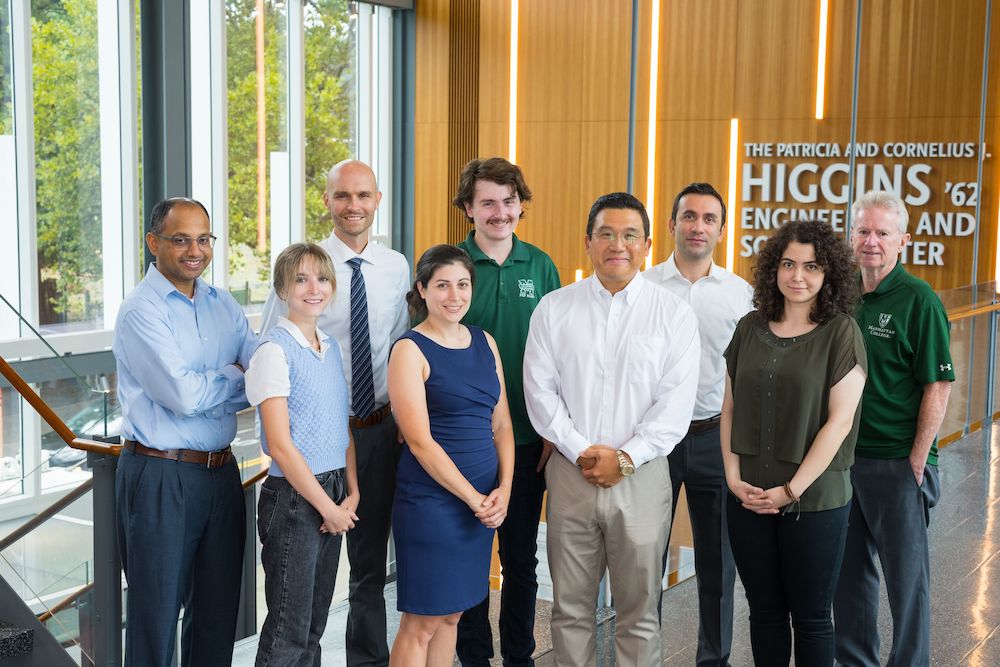
Preparing the next generation of civil and environmental engineers has always been the goal of Manhattan College’s School of Engineering. Currently, the School is educating tomorrow’s engineers with help from a grant from the National Science Foundation (NSF).
Resources provided by the NSF award will help faculty and alumni of the Civil and Environmental Engineering department to build online and in-person educational modules designed to teach students in undergraduate engineering programs nationwide. The modules will include instructional materials for professors, as well as presentations and projects, and will feature various real-world scenarios that relate to economics, business and statistics. The learning tools are designed to help aspiring infrastructure designers, builders and operators prepare for their future careers.
To keep up with an industry landscape that is ever-changing, associate professors of civil and environmental engineering, Juneseok Lee, Ph.D., and Matthew Volovski, Ph.D., saw the need for more robust systems and analytics course content. Together, they began brainstorming the NSF grant proposal in 2020.
“We wanted to train [and] prepare [the students], so they are fully ready when they join the workforce,” said Lee. “The new innovative modules [we proposed are] comprised of videos, instruction and exercises that can be implemented to nationwide/worldwide civil engineering undergraduate courses.”
After submitting the proposal in July 2021, the team was awarded the grant in December 2021 and began their work this past May.
“The resulting research products will not only provide the next generation of infrastructure designers, builders and operators with the system-level thinking and analytics skills they will need to thrive in the 21st century, but also help attract students with diverse backgrounds into this critical STEM field,” Volovski said.
The team from the College assisting in the grant’s research consists of principal investigators (PIs) Lee and Volovski, along with faculty consultant Peter Sweeney ’64 and four co-PIs including visiting professor Christina Cercone ’09, associate professor Swaminathan Krishnan, Ph.D., associate professor Mehdi Omidvar, Ph.D., and assistant professor Medya Fathi, Ph.D. The project will also include undergraduate and graduate researchers, along with project advisors Peter J. Zipf ’79, Tony D. Canale ’94, Paul Scariano ’94, Brian P. Sullivan ’97, 07 (M.S.), and Timothy C. Lynch ’07 ’10 (M.S.), who are all College alumni.
The goal for the NSF grant team and these newly-developed modules is to allow departments and professors from all over to benefit from this work, regardless of whether they focus on undergraduate education or are from Tier 1 research institutions.
“Manhattan College is uniquely qualified to develop and serve as a model program,” Lee says. “ [The College] has a strong working relationship with the nation’s leading civil engineering firms, and serves as the largest civil engineering bachelor’s program in New York City, which is home to the nation’s largest and most diverse assembly of civil infrastructure.”
By: Taylor Brethauer-Hamling ’19